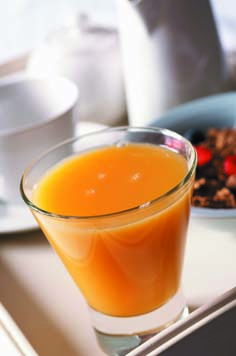Tetra Pak Responds to Consumer Demand For More Natural Products With New Processing Innovations

Your health is your wealth. This is one of the biggest global trends driving consumers’ shopping behaviour today, as they look for products that deliver optimum nutritional and wellness benefits while also being natural. As a result, people are seeking natural fruit juice products which undergo less processing and retain their nutritional qualities. For instance, there is a growing market for drinks that contain fibres, pulp and particles and give people the sensory experience of drinking fruit in liquid form.
These trends are presenting new challenges to the juice industry and placing new demands on the technologies they use to deliver high quality products. In tandem, producers are relentlessly seeking processing solutions that deliver operating and environmental efficiencies without compromising the quality of juice products.
Tetra Pak is helping customers respond in two ways: improved pasteurization, and protection of particle integrity to increase juice quality. Progression in both these areas is essential to ensure the industry can accommodate consumer demand for more natural products, something which is only set to rise in the future.
Landmark Innovation in Juice Pasteurization
Looking first at pasteurization, Tetra Pak has pioneered a revolutionary processing method for high acid juices which saves up to 20% on energy consumption and brings cost and environmental benefits to customers.
Standard juice pasteurization involves two steps, with the first heating the liquid to 95-98°C and the second to 95°C. Tetra Pak wanted to identify costs savings for fruit juice customers without compromising product quality and so set about researching how it could improve pasteurization best practice at its Centre of Expertise. This led to an important discovery: the low pH level of juice acts as a natural hurdle, inhibiting the growth of many types of microorganisms. Therefore, when combined with the first pasteurization stage, the second pasteurization is not required at such a high temperature, provided high quality ingredients are used.
 Following the discovery, Tetra Pak developed a new pasteurization process which reduces the temperature of the second pasteurization step from 95°C to 80°C and significantly improves energy efficiency. The concept was piloted and proven at Valio Oy’s juice plant in Helsinki, Finland, which showed that pasteurization could undergo a temperature reduction whilst also retaining food safety and taste.
Following the discovery, Tetra Pak developed a new pasteurization process which reduces the temperature of the second pasteurization step from 95°C to 80°C and significantly improves energy efficiency. The concept was piloted and proven at Valio Oy’s juice plant in Helsinki, Finland, which showed that pasteurization could undergo a temperature reduction whilst also retaining food safety and taste.
Moreover, tests showed that on a line processing 22,000 litres of orange juice per hour, the 20% energy savings created by the new process equates to Eur19,000, compared to current average energy prices, and also leads to a 20% reduction in carbon footprint.
“This breakthrough in pasteurization means that we can help juice producers optimise efficiency and reduce the energy consumption of processing,” says Katarina Ternström, Manager of the Centre of Expertise at Tetra Pak. “This helps our customers improve the bottom line, which is crucial in an increasingly competitive market.”
Tips to Optimize Juice Processing
Secondly, Tetra Pak looked at ways to improve product quality, publishing a practical white paper for food and beverage manufacturers to help them address growing consumer demand for products with natural fruit-like textures.
These consistencies – achieved through maintaining particles, fibres and pulp in fruit juices during processing – are fragile and can be easily damaged. Conventionally, beverage processors have focused on incorporating fibres and pulp in response to consumer preferences. However, as particles have become a significant element in enhancing taste, in order to create the ultimate drinking experience, it has now become important to retain the integrity of all three.
 At Tetra Pak’s Product Development Centres, unique teams of development engineers offer customers the opportunity to optimize product quality whilst also considering raw material costs. This includes the development of innovative tools that take particle heating time lags into consideration to enable the production of high quality, great tasting juices that do not impact profitability.
At Tetra Pak’s Product Development Centres, unique teams of development engineers offer customers the opportunity to optimize product quality whilst also considering raw material costs. This includes the development of innovative tools that take particle heating time lags into consideration to enable the production of high quality, great tasting juices that do not impact profitability.
Conclusion
The ongoing trend for more natural health and wellness products means that fruit juices will remain a popular choice for consumers. However, with ever more discerning purchasing decisions centred on ingredients and taste sensations, it is increasingly challenging for producers to meet these demands and look after their bottom line. Tetra Pak recognises that innovation is a key tool in ensuring success and will continue to share its future discoveries for the benefit of both customers and consumers.
To find out more about how to minimize damage when processing particles, fibres and pulp, please see: www.tetrapak.com/temperature.


































